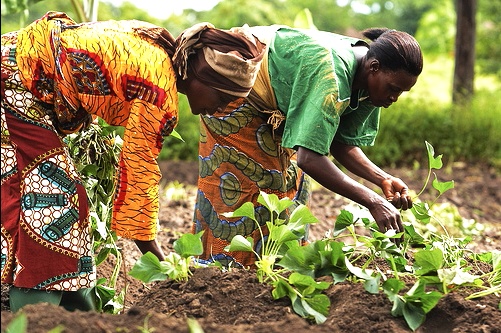Committee Advances Progress Towards Gender Inclusive Agricultural Sector
The National Gender Steering Committee for the Implementation of the National Gender Policy in Agriculture (NGSC-NGPA), under the auspices of the Federal Ministry of Agriculture and Food Security (FMAFS), supported by Sahel Consulting, ActionAid Nigeria, DRPC, AGRA, and Plan International, organized a 1-day National Gender Policy in Agriculture Forum at Hawthorne Suites, Abuja to scale up and ensure optimal implementation of the national gender policy in agriculture.
The forum, which was aimed to elevate the implementation of the national gender policy for improved food and nutrition security, brought together about 245 participants.
Among them were Parliamentarians, Ministers, Commissioners, Permanent Secretaries from Federal and State Ministries of Agriculture and Food Security, representatives from diplomatic circles, the private sector, donor organizations, civil society groups, farmers’ organizations, and the media.
Acknowledging the strategic impact of the NGSC-NGPA and collaborating organizations, participants commended their efforts in fostering dialogue and collaboration crucial for effective policy implementation nationwide.
Special recognition was given to Senator Natasha Akpoti-Uduaghan, parliamentarians, State Commissioners for Agriculture and Women Affairs, donor agencies, and stakeholders who expressed their unwavering commitment to the cause.
Observations shed light on the need for synchronized efforts across Nigerian states to integrate gender mainstreaming in the agricultural sector.
The forum emphasized critical challenges such as food and nutrition insecurity, the lack of a comprehensive database for women, youth, and persons with disabilities in agriculture, and the pervasive issue of gender-based violence.
Recommendations emerged with a focus on urgent advocacy for the domestication of the National Gender Policy in agriculture at the state level.
The call for a multi-sectoral costed action plan, collaboration with stakeholders to implement policy objectives, the creation of a national database for smallholder farmers, and investment in cottage processing and storage facilities took center stage to address post-harvest losses.
The forum underscored the pressing need to address security challenges faced by farmers, particularly small-scale farmers, and emphasized the necessity of a dedicated budget line to fund the activities of the National and State Gender Steering Committees for effective policy implementation.
This unique angle highlights the proactive strides taken toward fostering inclusive growth and empowerment in the agricultural landscape.
Agro Nigeria / Foluke Ibitomi


Comments are closed.